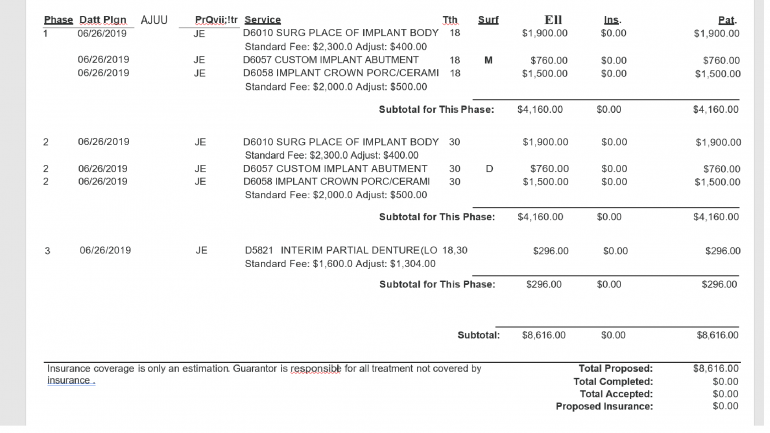
Dental Code D2791: Crown - Full Cast Predominantly Base Metal
A full cast crown is a type of dental restoration that is used to cover and protect a tooth that has been significantly damaged or decayed. The D2791 code specifically refers to a full cast crown made primarily from base metal materials, such as gold, silver, or other metal alloys.
What does Dental Code D2791 Mean?
Dental Code D2791 represents a full coverage restoration that completely caps or "crowns" a tooth. The "full cast" aspect indicates that the crown is made from a single piece of metal, typically a base metal alloy, rather than being constructed from multiple layers or materials. This type of crown is designed to be a durable and long-lasting solution for restoring the function and appearance of a severely compromised tooth.
The Procedure for a D2791 Crown
Receiving a D2791 crown typically involves the following steps:
Preparation of the Tooth
The first step in the process is for the dentist to prepare the tooth to receive the crown. This involves removing a small amount of the tooth's outer enamel layer to create space for the crown to fit properly. The dentist will shape and contour the tooth to ensure a proper fit and optimal aesthetics once the crown is in place.
Impression and Mold Creation
After the tooth has been prepared, the dentist will take an impression or mold of the tooth and the surrounding area. This impression is used to create a replica of the tooth, which is then used to fabricate the customized crown in a dental laboratory.
Temporary Crown Placement
While the permanent crown is being manufactured, the dentist will place a temporary crown over the prepared tooth to protect it and maintain the patient's bite alignment. The temporary crown is typically made from a more affordable material, such as acrylic or resin, and is designed to be a short-term solution until the permanent crown is ready. It helps to keep the prepared tooth stable, prevents sensitivity, and ensures the patient can continue to eat and speak comfortably during the fabrication process. The temporary crown is not as durable as the permanent restoration, so patients are advised to avoid chewing hard or sticky foods with the temporary crown in place.
Crown Fabrication
The dental laboratory will use the impression to create the permanent crown. This process typically involves casting the metal alloy into a mold to create the single-piece restoration. The laboratory technicians will carefully select the appropriate metal alloy, which may include gold, silver, or a combination of base metals, based on the specific requirements of the case. They will then melt and pour the molten metal into a mold that replicates the shape and size of the prepared tooth. Once the metal has cooled and hardened, the crown is polished and any necessary adjustments are made to ensure a precise fit. The completed crown is then sent back to the dentist's office for final placement.
Crown Placement
Once the permanent crown is ready, the dentist will remove the temporary crown and carefully place the new D2791 crown over the prepared tooth. The crown will be checked for proper fit, bite alignment, and appearance before being permanently cemented in place. The dentist will ensure that the crown sits flush with the gumline and does not interfere with the patient's bite or cause any discomfort. They may use a specialized dental cement or adhesive to securely bond the crown to the underlying tooth structure. This process is crucial to ensure the long-term stability and function of the restoration.
Finishing Touches
The dentist may make minor adjustments to the crown, such as polishing or fine-tuning the bite, to ensure a comfortable and natural-looking restoration. This may involve using specialized dental tools to slightly reshape or smooth the surface of the crown, ensuring a seamless transition between the crown and the surrounding teeth. The dentist may also check the patient's bite and make any necessary adjustments to prevent any potential issues, such as uneven wear or discomfort. These final steps help to ensure that the patient can comfortably use the crown for everyday tasks like eating and speaking without any issues.
Benefits of a D2791 Crown
The primary benefits of a D2791 crown include:
Durability: The full cast metal construction makes these crowns highly resistant to wear and tear, making them a long-lasting solution for restoring damaged or decayed teeth.
Strength: The metal alloy used in D2791 crowns is exceptionally strong, allowing the restoration to withstand the significant forces generated during chewing and biting.
Cost-effectiveness: Compared to some other crown options, such as those made from ceramic or porcelain, full cast metal crowns are generally more affordable.
Cost Considerations
The cost of a D2791 crown can vary depending on several factors, including the location of the dental practice, the materials used, and the complexity of the case. On average, the cost of a D2791 crown can range from $1,000 to $2,500 per tooth. Patients should consult with their dentist to understand the specific costs and any potential insurance coverage for their particular situation.
Summary of Dental Code D2791
Dental Code D2791 represents a full cast crown made predominantly from base metal alloys, such as gold or silver. This type of restoration is designed to be a durable and long-lasting solution for restoring severely damaged or decayed teeth. The process of receiving a D2791 crown involves tooth preparation, impression taking, temporary crown placement, crown fabrication, and final crown placement. While these crowns may be more cost-effective than some other options, patients should discuss the specific costs and benefits with their dentist to determine if a D2791 crown is the best choice for their oral health needs.
If you're considering a D2791 crown or any other dental treatment, be sure to explore your options on
Dr. BestPrice, the leading dental auction platform. Find the best deals from top-rated dentists in your area and get the care you need at a price you can afford.